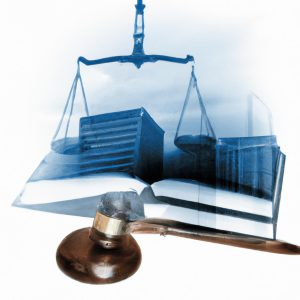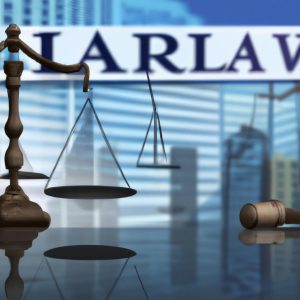In the intricate world of estate planning and probate, the term “died in testate” carries significant weight and implications for both individuals and their loved ones. As experienced lawyers at Morgan Legal Group in New York City, we navigate the complexities of Wills, trusts, and elder law to ensure that our clients’ wishes are carried out seamlessly. Join us as we delve into the nuances of dying intestate and the legal ramifications that accompany such a situation.
Understanding the Implications of Dying Intestate
When someone passes away without a will, they are said to have died intestate. This can have significant implications for their estate and loved ones, as the distribution of assets will be determined by state laws rather than the individual’s wishes. is crucial for anyone looking to protect their assets and ensure their loved ones are taken care of.
One of the main consequences of dying intestate is that the state will decide how your assets are distributed. This can lead to assets being distributed in a way that is not in line with your wishes or the needs of your loved ones. In addition, dying intestate can also result in higher estate taxes and legal fees, further reducing the amount of assets that are passed on to your heirs. By creating a will and engaging in estate planning, you can avoid these pitfalls and ensure that your assets are distributed according to your wishes.
Key Considerations for Individuals Who Pass Away Without a Will
When an individual passes away without a will, also known as dying intestate, there are several key considerations that must be taken into account to ensure their estate is handled properly. One crucial aspect to address is the distribution of assets, which will typically be determined based on state laws. It’s important to consult with an experienced attorney to navigate these complex legal regulations.
<p>Another important consideration is the appointment of an administrator to oversee the estate proceedings. The administrator will be responsible for managing assets, paying off debts, and distributing the estate according to the laws of intestacy. It's crucial to choose a competent and trustworthy individual for this role to ensure that the deceased's wishes are respected and that the estate is handled efficiently.</p>Navigating the Probate Process for Those who Died Intestate
When individuals pass away without a valid will in place, their estate is considered intestate. can be complex and overwhelming. It is crucial to understand the steps involved and the potential challenges that may arise along the way.
<p>In the absence of a will, state laws dictate how the deceased person's assets are distributed. This can lead to disputes among family members and other beneficiaries. Probate court will appoint an administrator to oversee the distribution of assets according to the laws of intestacy. This process can be time-consuming and costly, so it is essential to seek legal guidance to ensure a smooth probate process.</p>Recommendations for Avoiding Intestacy Issues in Estate Planning
When it comes to estate planning, it is crucial to take the necessary steps to avoid intestacy issues that may arise after one’s passing. By following these recommendations, you can ensure that your assets are distributed according to your wishes:
- Create a Will: One of the most important steps in avoiding intestacy is to create a comprehensive Will that clearly outlines how you want your assets to be distributed.
- Review and Update Regularly: It is essential to review and update your Will regularly, especially after major life events such as marriage, divorce, or the birth of children.
- Consider Trusts: Setting up trusts can provide additional protection for your assets and help avoid intestacy issues.
| Issue | Solution |
|---|---|
| Lack of a Will | Create a comprehensive Will |
| Outdated Will | Regularly review and update your Will |
| Complex Assets | Consider setting up trusts |
By following these recommendations and working with an experienced estate planning attorney, you can ensure that your assets are distributed according to your wishes and avoid intestacy issues that may arise after your passing. At Morgan Legal Group in New York City, our team of professionals can help guide you through the estate planning process and provide tailored solutions to meet your specific needs.
Q&A
Q: What does it mean to die in testate?
A: When someone dies in testate, it means that they passed away without leaving a valid will behind to guide the distribution of their assets.
Q: What happens to a person’s assets if they die in testate?
A: In the absence of a will, state laws determine how the deceased’s assets are distributed among their heirs. This process is known as intestate succession.
Q: Can dying in testate cause complications for the deceased’s loved ones?
A: Yes, dying in testate can lead to disputes among family members over the distribution of assets, as well as costly and time-consuming legal proceedings to determine who inherits what.
Q: How can someone avoid dying in testate?
A: To avoid dying in testate, it is important to create a will and regularly update it to reflect any changes in circumstances or preferences regarding asset distribution.
Q: Are there any benefits to dying in testate?
A: While dying in testate may simplify the process of asset distribution in some cases, it can also result in assets being distributed in a way that does not align with the deceased’s wishes. Creating a will allows individuals to ensure that their assets are distributed according to their desires.
To Wrap It Up
As we conclude our exploration of what it means to die intestate, it is clear that the consequences of not having a will in place can be far-reaching and complex. From potential disputes among family members to challenges in distributing assets, the lack of a clear plan can leave loved ones in a state of uncertainty and confusion. It serves as a reminder of the importance of thoughtful estate planning and the need to communicate our wishes to those closest to us. Hopefully, this article has shed some light on the implications of dying intestate and the importance of taking proactive steps to ensure our affairs are in order. Let it serve as a gentle nudge to consider your own estate planning needs and take the necessary steps to protect the future of your loved ones.
What Does it Mean to Die Intestate?
Dealing with the death of a loved one is never easy. Amidst the grief and emotional turmoil, there are also legal matters to attend to, such as making sense of the deceased’s estate. Many people are familiar with the term “writing a will,” but what happens when someone dies without leaving a will behind? In legal terms, this is known as dying intestate. In this article, we will delve into what it means to die in testate and the implications for your loved ones.
What is Intestate?
Intestacy refers to the situation in which someone dies without leaving behind a valid will. It could also occur if the will that’s left behind is not legally enforceable for some reason. In such cases, the deceased’s estate will be dealt with in accordance with the laws of intestacy, also known as intestate succession laws. These laws outline how a person’s estate will be distributed in the absence of a will, based on their familial relationships, rather than their personal wishes.
Under the laws of intestacy, a person’s estate typically goes to their closest living relatives, usually their spouse or children. If there is no spouse or children, the estate may pass to parents, siblings, or other extended family members, depending on the specific laws of the state. If no living relatives can be found, the estate may even escheat to the government.
The Importance of Having a Will
The main purpose of a will is to ensure that the deceased’s final wishes are carried out. By specifying how they want their estate to be distributed, a person can have control over who inherits their assets and how they are divided. Without a will, it is up to the laws of intestacy to determine these matters, which may not align with the deceased’s desires.
Additionally, a will allows you to appoint an executor to oversee the distribution of your estate and handle any outstanding debts or legal matters after your death. Without someone to fill this role, the court will appoint an administrator to manage the estate, which may not be someone the deceased would have chosen.
The Role of the Executor or Administrator
The executor or administrator of an estate has the important responsibility of managing and distributing the deceased’s assets according to the laws of intestacy. If there is no will, all their decisions and actions must comply with these laws. This can be a daunting task, which is why it is essential for the appointed person to be responsible, organized, and trustworthy.
The executor’s role typically includes locating and securing assets, paying any outstanding debts and taxes, and distributing the remaining assets to the beneficiaries. If there is no will, the administrator may also have to determine the rightful heirs of the estate and their shares. If there are any disputes among family members, the administrator may have to handle those as well.
The Implications of Dying Intestate
When someone dies intestate, the distribution of their estate may not align with their wishes. This could result in unintended beneficiaries inheriting a portion of their assets or not receiving anything at all. For this reason, it is crucial to have a valid and up-to-date will in place to ensure your final wishes are carried out.
Dying intestate can also result in a prolonged and costly probate process. Without a will, the administrator must locate and contact all potential heirs and may even have to post public notices to ensure no one is left out. This can delay the distribution of the estate and incur additional legal fees and court costs.
Another potential issue with dying intestate is that it may lead to disputes among family members. Without a will to clearly outline the deceased’s intentions, family members may argue over the distribution of assets, leading to strained relationships and potential legal battles.
How to Plan for the Future
The importance of having a will cannot be overstated. It is never too early to plan for the future and ensure that your final wishes are carried out. Some practical steps you can take include:
1. Drafting a will: Work with an attorney to create a legally valid will that clearly outlines your wishes for the distribution of your estate.
2. Review and update your will regularly: As your life changes, it is vital to review and update your will to reflect those changes. For example, if you get married, divorced, or have children, you may need to update your will to reflect those changes.
3. Consult an attorney for complex matters: If you have a large or complex estate, it’s best to consult with an experienced estate planning attorney to ensure your assets are properly protected and distributed.
4. Consider a living trust: A living trust can help avoid the lengthy and costly process of probate. It allows your assets to be transferred to your beneficiaries without court involvement.
Final Thoughts
Dying intestate can have several unintended and undesirable consequences. To ensure your final wishes are carried out, it is crucial to have a valid and up-to-date will in place. It is also essential to regularly review and update your will and consult with an attorney for any complex matters. Taking these steps can provide peace of mind, knowing that your loved ones will be taken care of after your passing.





